The holidays: a time for upholding long-standing traditions, usually involving festive gatherings of family and friends, communal meals, sacred services, gift exchanges, visitors, and, invariably, crowds—until this year, that is.
The coronavirus is forcing families and communities to reconsider what, how, and with whom they celebrate in ways that have never before been addressed. For festivities that occur in co-ops, condos, and HOAs, those plans will also have to account for new rules and restrictions that associations and corporations have adopted to keep their residents, staff, and visitors as safe as possible as the pandemic heads into another year.
But in spite of the unprecedented challenges before them, associations and cooperatives are finding ways to imbue the season with spirit and celebration. It just might look a bit different than it has in the past.
Where the Weather Is Warm
In localities where pleasant temperatures stick around for the holiday season, outdoor festivities offer communities a safer option for gathering than being indoors. Where six-foot separation can be maintained, and provided that masks are worn properly by all attendees when they are not eating or drinking, a small outdoor holiday gathering with people from outside one’s household is considered “moderate risk” by health experts, including the Centers for Disease Control and Prevention (CDC). (“Lower risk” activities are discussed in the next section.)
Warm-weather locations are also popular holiday destinations for out-of-state visitors, of course, so communities in places like Florida and Nevada must also consider how they are going to handle an influx of guests, revelers, and vacationers when states’ viral counts are surging and regulations for quarantining and COVID testing change frequently.
Dr. Linda Marks, Commissioner of the City of Aventura, Florida, as well as the Aventura Marketing Council’s Chairperson of the Condo and Homeowners Board Members Association and board president at The Point condo association where she lives, tells us that multifamily communities should plan carefully in anticipation of holiday visitors as well as incoming ‘snowbirds’ (residents who spend warmer seasons up north and return to their southern homes in the winter). Will communal spaces be open for holiday celebrations and family get-togethers? Will health conditions of individuals be assessed before being allowed access to certain spaces or events? If pools and health clubs and other leisure amenities are open, will their procedures for use change as more residents return for the winter and/or host friends and family with expectations of using them? Each building or community must take its own population, risk factors, policies, and resident feedback into consideration when addressing these questions.
No matter what rules an association or cooperative board puts in place, says Marks, the earlier it informs residents of them, the better. People need to make plans and communicate with their guests, too. No one should be surprised by a new visitor policy or a new tennis court regulation, especially in the middle of the holidays. “It is a really challenging balancing act,” says Marks of both the condo’s and the city’s attempts to institute safety precautions while allowing residents to come together and enjoy their properties. “We’re doing what we can to lighten spirits and give people diversions.”
Activities with Lowest Risk
If you are following the advice of the CDC and most other medical authorities, you will likely opt to keep your holiday activities as close to home as possible, rather than traveling, which poses coronavirus risk for both oneself and the population at large. In fact, staying at home, with a limited number of household members or perhaps a fastidious ‘pod’ of close associates, is the safest way to spend the holidays while the virus still poses a worldwide health threat.
The CDC has provided recommendations for holiday activities that pose the lowest risk to individuals in terms of coronavirus contagion, and they can be enjoyed by any household, whether an apartment, condo, co-op, townhome, or single-family residence:
• Have a small dinner with only people who live in your household
• Prepare traditional family recipes for loved ones and neighbors, especially those at higher risk of severe illness from COVID-19, and deliver them in a way that doesn’t involve contact with others
• Have a virtual dinner and share recipes with friends and family
• Shop online rather than in person, or shop locally on days other than Black Friday
• Watch sports events, parades, and movies from home
Deck the Halls
Spectrum Association Management, which manages properties throughout the southwest, mentions that communities in the area have started decorating early “to kick off the last quarter of the year in effort to lift spirits, maintain a sense of normalcy, and create community.” In addition to festooning their homes and yards with the regular holiday fare, residents are adding lights and displays with messages like ‘Together Apart’ and similar sentiments. With the idea of “ending this year on a celebratory note,” households and communities are sharing their displays on social media with hashtags like #CoronaKindness and #ChristmasLights.
Co-ops, condos, and HOAs that allow public-facing decorations in and around residences can promote such activities with contests or photo-sharing within their communities. Holiday displays in lobbies and entrances can bring joy to the world—even if your world is currently restricted to your building or your neighborhood. Bring out the lights, trees, colors, and sparkly things that remind us of holidays past and stir up anticipation of future merriment. (Just be mindful of anything that can pose a fire hazard, impede emergency egress, or exceed brightness and noise restrictions.)
Home for the Holidays
Multi-Housing News points to virtual ways of getting together from the safety and comfort of home that are made possible by access to high-speed internet, new software, and availability of smart devices. With the Netflix Party extension for Google Chrome, for example, groups of individuals with miles or walls between them can simultaneously watch anything that streams on Netflix while using the chat menu to have a fun, communal experience in a socially distanced way. (Note that Netflix Party only works on desktop and laptop computers for now, and Chrome must be installed.) MHN suggests that users enhance this experience by plugging a laptop into their TV with an HDMI cable, thereby getting better sound and a larger picture. What better way to enjoy “It’s a Wonderful Life”—and to be reminded that it is, in spite of these challenging times.
Another suggestion from Multi-Housing News is to promote an online game service that might appeal to a particular community’s residents and take the place of such in-person activities. Some examples are:
• Board Game Arena (en.boardgamearena.com/join): Free board games
• Tabletop Simulator (www.tabletopsimulator.com/games): Realistic, 3-D simulated boards, for a charge
• Tabletopia (www.tabletopia.com): Some free games; some require a premium subscription to host additional players
• QuizWitz (www.quizwitz.com/en): Free and expanded versions for a new form of Trivia Night
• Jackbox Games (www.jackbox.tv): A variety of games and quizzes that require use of a computer screen and smartphone for each player
Advice from Medical Experts
Dr. Tina Tan, pediatric infectious disease specialist at the Ann and Robert H. Lurie Children’s Hospital of Chicago and professor of pediatrics at Northwestern University’s Feinberg School of Medicine, tells National Public Radio that she fears that the lure of holiday parties, as well as more indoor activity as temperatures drop, will result in more illnesses. “Right now, in many areas of the country, COVID-19 rates are starting to surge again,” says Tan. For multifamily communities that normally plan in-person functions and gatherings to celebrate the holidays, serious consideration of health risks should be taken into account before extending invitations or announcements to residents. Indeed, property managers from New York to New Hampshire; Naples, Florida to Naperville, Illinois; told us that they and their boards are forgoing any in-person plans for their communities this holiday season.
Elizabeth Stuart, PhD, AM, associate dean for Education at the Johns Hopkins Bloomberg School of Public Health and a professor in Mental Health, Biostatistics, and Health Policy and Management; and Keri Althoff, PhD, MPH, associate professor in Epidemiology with a joint appointment at the School of Medicine at Johns Hopkins, published some important considerations for holiday planning this year. Noting that “Innovation is key,” they suggest planning a small or fully online event now, with a larger in-person event to look forward to once the pandemic has resolved. A synchronous moment on a specific date and time observed virtually can allow distant attendees to show support and feel connected. Attendees can then contribute to or view a virtual scrapbook that they create with pictures or videos of the moment, they say.
For those who insist on gathering in person, Stuart and Althoff maintain the same exhortations that have been repeated over and over again, but still bear mentioning again here: outdoors is better than indoors; if indoors, keep density as low as possible and maximize ventilation and air flow; wear masks at all times when around people outside of your household; wash your hands frequently with soap and water for at least 20 seconds. But think carefully about travel, say Stuart and Althoff. Aside from the risks of contracting and spreading coronavirus, keep in mind that travel to or from certain states might require a period of quarantine upon entry. Exposure to COVID while traveling will force you to extend your stay in that area for at least 14 days in an isolated accommodation. If you become ill at your destination, you may have to seek medical care in an area away from home. Also consider quarantine requirements for your return home, too, whether imposed by your home state or by your work or children’s school. If your holiday plans include travel, plan for all of these contingencies as well.
The Final Word
Acknowledging the temptations to ignore or forget some of these recommendations while in the throes of reuniting and revelry, Community Health Manager Sam Jarvis of Johnson County Public Health emphasizes the importance of flexibility and communication this holiday season. In an interview with Iowa City, Iowa Mayor Bruce Teague, he explains, “During COVID, we’re gonna have to challenge ourselves just a little bit to lower our risk factors. Have the crucial conversations with your relatives and loved ones. Plan ahead. It’s very tempting to want to see people, especially since many of us haven’t seen certain loved ones for months on end, but it’s still important to be very vigilant now more than ever. Especially if you’re a person at increased risk, or your loved ones or friends are, there’s a lot to consider.” With the many options we have for virtual connection, we can do our best to keep everyone healthy for what is sure to be an enormous celebration when the coronavirus crisis is behind us. The fewer gatherings now, the faster we can make that happen.
Darcey Gerstein is Associate Editor and Staff Writer for The New Jersey Cooperator.



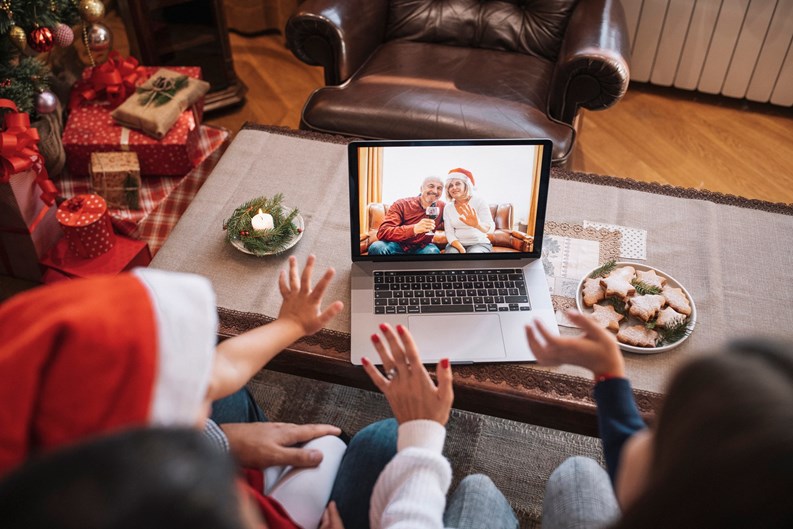


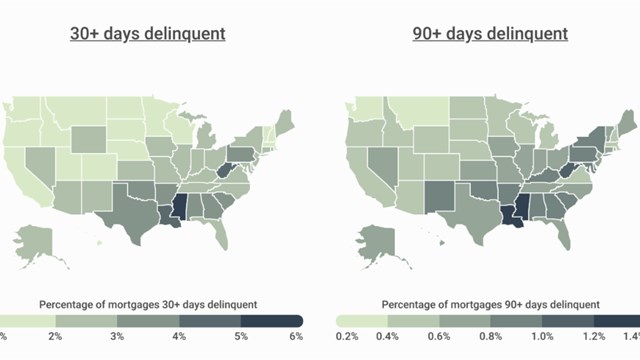
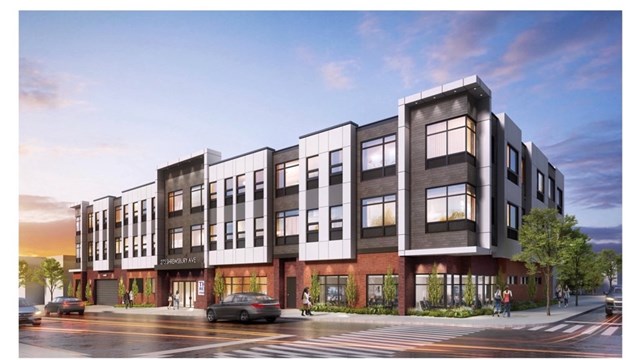
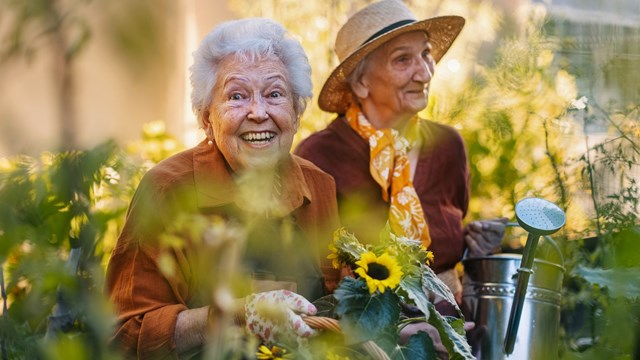
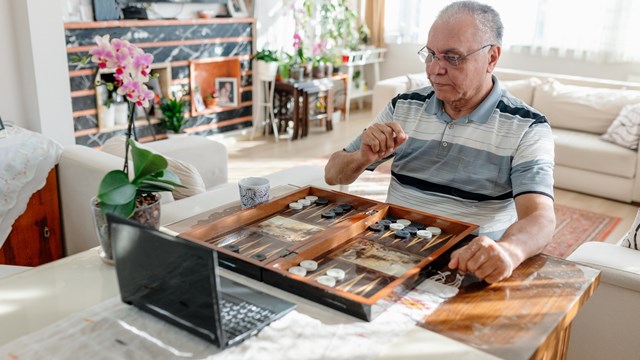
Leave a Comment